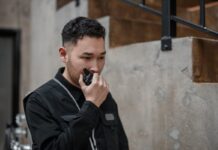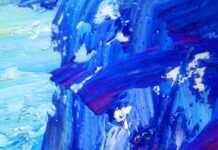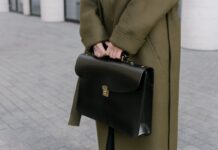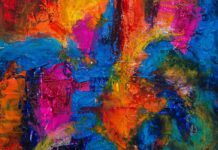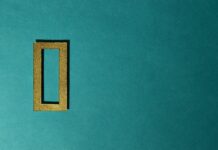( Part 3 of 3)
Click here for Part 1
Click here for Part 2
*
15.
On my way to the twice-monthly appointment at the Commission of Lunacy, my teeth hurt, and this dull pain makes the day insubstantial. My impression is that my body gets around a lot more than I do. Walking across an ache is not an unusual sensation. Whether the trees are indeed poised to embrace me, light seeps into my thinking, dazzling words away, polishing the steps in front of me.
Much of what is happening appears, in fact, to not be occurring at all. I know this because routinely I am startled by the snap of an adjustment in reality to where I actually am and to what is actually the case, even though this can happen two or three times in succession.
Another neighbor waited for the garbage truck to come down his street, and as it passed by, he threw himself into the back of it. He did not call out or scream as the truck’s mandible did its compacting. At first, one of his hands was still poking out, as if waving us off. But, soon it was folded in with everything else and disappeared.
When asked whether she wanted the remains, such as they were, the man’s wife said she was willing to take responsibility for them if there was some law that said that she should. Otherwise, she said she had no problem if the mass of what he had been continued to inhabit the rubbish where it had been dumped.
Malio bet him that Osoby could not steal the cap off of a policeman’s head without the policeman noticing it.
16.
Curious that what I remember about when I drowned in the sea is mostly swarms of bubbles all around me and the changing tint of depth, as water and light passed through each other less and less.
Despite the relentless meander of living, life somehow progresses. Passing through the empty center of a moment, all the associations that gather there are strung together, like the beads on a necklace. What makes us arrive further onward, even though we appear to just be tying ourselves in more knots? Changes in direction hardly affect the surface of living, and yet every spinning object casts out energy. Intentions spoke the wheel of breathing like serpents bursting from rifts and braiding into sketches of the pulse that continues. Buck and wing across the stage.
The sound of the chanting approached swiftly over the air. Like water, so many marchers filled the grid of streets, a surf of color that washed up onto the facades in hued expressions of outrage and loss. A vanished sister, an aunt who lost her house, a friend who had to emigrate, a father without his medicine. And now, like an army pierced with arrows, rage had allowed them to become liquid and overflow into the street.
The young woman from the stationary store slammed its shutters and pulled the grate down over the doorway. The pension landlady called in her little dog. The tailor on crutches hurried back to his garage.
“Life is not a battery,” said Malio smiling. “Nor is it what the battery allows the motor to do. No, life is the charge on the battery, a limited amount of stored energy. The sad fact is that life is an effort.”
17.
My sight line rose up through the grate where the turtledoves nested and then reached the light that dropped from the late afternoon sky. By nighttime, to look up meant tracking my own movement by looking at pinpricks the clouds erased and revealed again by turns.
Touching sand, arriving at its rise after grasping at nothing solid for so long. To be the very line of the shore, the back and forth of the edge of the threshing churn, the slap and reach of contact and then slipping back into the murk. Forever surging toward some clarity and light not of this life only to lose it again, lingering, for a breath, in the bubbles on the effervescent spume.
She was standing in an empty field, fenced off by barbed wire from the muddy road where I walked. “I am the guard to this part of the museum,” she said. This seemed fine to me in that I had no idea what she was talking about. “I ran the other one off,” she offered up. I nodded amiably. “He tried to talk me down with a shiny pistol he had, but I found all I needed was a pocketful of rocks to set him running.” I think I looked suitably impressed. “Not too many people come into the museum from this side, which is why we charge a little more.” She named a sum and I mechanically reached into my pocket. She waved me off, saying I did not have to pay right away. I did not mention my total ignorance of being, in fact, in a museum, or my curiosity at what she could possibly mean now that she had said such a thing. I remarked that I had stepped off the boat in order to wander the river’s edge, and then while trying to get through a bramble, I seemed to have lost the river altogether.
This seemed plausible to her, and she offered to take me back to the riverside. Our walk was pleasant, and I remember her breath smelled like honey. Above us, the rain clouds lingered but would not erupt over the afternoon.
Sometimes it was as if Osoby had gone elsewhere in his thoughts. At such times, Glum would say Osoby had fallen into himself. Such an expression did not seem odd until much later. Osoby himself said it was hard to live and think at the same time. There was a vanishing point every association fell into, a siphon of details he spun around, while the present seemed to slip away into the clouds.
18.
The stars find places and begin to move together. The night sky becomes just time’s capricious murmuration. When I write things down, words mean themselves to bits.
Reading this you will almost forget it, as if it were a rumor. Someday, you will confuse what you read here with your own experience.
We are perpetually, incessantly surrounded by filth. We try to build membranes to separate us from this filth, but the membranes themselves are simply dried and organized filth. We, ourselves, can be said to be mere variations on filth. I look up at the massive edifice of the People’s Bank, a ninety-floor building in the center of town. I rise through its innards in one of its elevators and suddenly, by the light of my imagination, the whole edifice becomes transparent. I see a toilet on the nineteenth floor and someone leaving his fecal matter in it. I feel the flush, and as I rise in the elevator, I see the feces falling in the pipes, floor to floor, presumably safely encased within the walls, but just inches from where a secretary rests her dozing head. I see how this event is multiplied floor to floor, now to hours, walls full of passing solid waste. It occurs to me that the fecal rivers only flow down, never up. What flows up is presumably clean water. And if this filth only flows down the walls and not up them, it means that a person on the forty-fifth floor is surrounded by twice as much shit as a person on the ninetieth, and that someone working on the first floor, a security guard say, is surrounded, practically immersed, in the shit of all ninety floors above.
Some might see my rising up through the building as a kind of cleansing, a kind of assumption toward god’s grace. I, however, cannot shake the certainty that I am moving toward the very rectal source of culpability, the aerial and absolute orifice evacuating.
“Nothing lawful is permitted in this godforsaken country,” Glum mumbled out. “That is why we will all die of our own stupidity.”
19.
Sinking wrapped in my billowing sheet, like an upside-down jellyfish, like a hibiscus flower opening to the sky. A hallucinated emanation becoming the membrane with which I trap myself and at the same time perceive everything around me.
A large percentage of my thinking no longer takes the form of ideas or thoughts, but rather occurs as pseudo-hallucinations that are projected on the inside of my eyelids in moments of near-sleep (much of my day), and takes the form of situations and events which I somehow “work through”, rehearse perhaps. These situations and events can be triggered by associations, but once running, are distinct from the associations that gave birth to them. This does not mean that thoughts and ideas cannot occur in these events or situations, but their role is secondary as tools to address the situation or event. Usually, the pseudo-hallucination ends when in the “real” world something falls out of hand, and say, hits the floor.
So many tasks to complete, and the accompanying anxiety, the yearning to be closer to others, the simple pleasure of someone’s company, the intricacy and beautiful detail of someone else’s problems, of all those other worlds, each almost as insubstantial, thankless, and superfluous as this one.
Osoby could be seen wandering the streets of Melantrichova, even long after his friends knew he was gone. He had never liked sleeping, preferring to explore the blank expanse of wakefulness around the clock and across the city. Refusing to break out of the silence around his watchfulness except for the occasional catnap, Osoby laughed about the appearance of a large mattress that pursued him through his brief, badly lit dreams.
20.
At night, when the rain envelopes my house, its soft cold fingers enter gently through the holes left by the missing panes. The rain descends upon the house and involves my breathing, my digestion, my perpetual sweating, as it drops crisscross, like the twigs of a nest around the dim light the house exudes. I have then the distinct sensation that it is up to me to survive these sudden changes in the substance of the air, as if it changed timbre from silence to this blanket of dense tiny sounds, droplet-taps, which only isolate my house further in the night’s darkness. I feel compelled to move, to rise up from my chair and pace about, but I must resist this temptation and stay still, breathe evenly, and concentrate on dissolving every obstruction that threatens to make my getting through the minutes more labored and less sure.
My impression is that the brutality of living is killing me. This is why I want to leave my hallucinations in order. Living spends itself toward death in a movement toward release. Eventually, we each regain a membership in uniformity. Life has been slowly scraped off me.
Compare such leisure to the life of a neighbor of mine, the boy with the colored glass head. Fluted glass from his mouth backward, as if his face were a whistle. Only after months of therapy was he able to remember occasions when his mouth had been used by others. This was perhaps why it only served him now as a kind of third ear. Jingles, heard expressions, borrowed opinions and gossip took up most of his mouth’s time. The rest of his head had nothing else to do but occupy itself with sand paintings and reading novels. His memories resembled bright fidgety fishes, like the hands of untrusting men attempting to shake hands but unable to.
Those who saw it said Osoby seemed to be singing as he fell. That, or perhaps it was that his cries of panic were curiously musical. Whatever the case, he apparently fell face upward, and no one saw him thrash about. Instead, those present described the silhouette of a spider falling backward with its legs outspread against the set backdrop of the sky. He had an unhurried, thoughtful expression on his face, there on the still cement. It could have been otherwise, of course. But this is how it had been.
21.
The angels are always moving about in my mind. Restless angels, angels with nails that are too long, angels that shiver. Shuffling back and forth, looking for somewhere to sleep. I feel the weight of their bodies, as they lean on me. When they break open into darkness, I have to catch my breath at so much possibility.
The clouds are getting louder. So, great herald? What grand machination? Is rampantry proof positive of divine dimension? And would I know it, feel it, savor it, were it to cascade down upon me? My skin turned to gold-leaf, would the sensation not more likely be one of dullness than of connection? And so I no longer jump to the trumpet blast, but rather wait for it to drown me, for the thorny scratches traced across me by the trapped rustling wings of angels to pour me out and portion me. This is what it is like to live in my house, a faded icon in wood where I am pressed, painted into some rendition, some pose of response, when in fact the stimulus, the rapture, has become incoherent, collaged.
A cup of coffee at a café in Byzantium. The table between us is a bluish-gray. You finish the last of your cigarette between your index and middle finger. You tuck your dirty blond hair behind your ear before reaching for the cup again. We are not lovers, but somehow I am sure that your concern for my well-being is genuine and generous. The weather is comfortable for me, cloudy and fresh. You smile in a warm way and say it has been nice, and it has, sitting here and having a cup of coffee together. I feel that this is my cue, I also have errands to run, and I begin gathering my things, my satchel, etc. You say you are treating me to the cup of coffee, that doing so will be nice. I look at the bills you pay with. They are different from those with which I am familiar, more colorful perhaps. As we are about to part, and I am about to head down a lane lined with tall trees, poplars is the word that comes to mind, you touch my arm. “You always think of me as death when you wake up.” You are looking into my eyes directly now, the way lovers do. “Do you really think if I were death, I would be this tender with you?” I return your gaze, and suddenly I feel a piercing empathy for you and cherish fiercely the ease with which we keep each other company. I kiss you on the cheek and you smile. “Don’t worry about such things,” I say. “We’ll talk again soon.” I begin to make my way down the lane, and open my eyes to sunlight so bright that by the time I see well again, my ears and mind have already adjusted to the new language.
I catch myself mumbling something. The air, the light, the silence, flatten again into a different containment. I have been playing with a ring on my finger and hear its tiny sound when it drops. A circle closes and the small gold band rolls across the floor. I bend down for it and then I reach for the lamp beside my chair. The word is not more; the word is here. Inhabiting, situating myself at this place where the water touches the land, this moving place, this ebb and flow, is never about questions, but rather about the content of time and sensation. I am not searching for anything. Rather I have tried to be where I have found myself. Breathing continues to glow with astonishment. How I ever got past things to words is a mystery to me. Living has flowered and then wilted. Each word is a group of shapes. There is a particular feeling to the air in my room. The floor is strewn with leaves and petals. What is it at night sometimes that makes me hear a nearby wailing?
Medellin 2009-2020
About the Author
The son of Colombian parents, George Mario Angel Quintero was born in 1964 in San Francisco, California, where he spent his first thirty years. He studied literature at the University of California, and was a Wallace Stegner Fellow at Stanford University. Under the name George Angel, he has published poetry, fiction, and essays in English and a book of short fiction, The Fifth Season, won the 1995 Fiction Collective 2 Nilon Award. A new and selected poems, On the Voice, was published in 2016.Since 1995, he has lived in Medellin, Colombia, authoring seven books of poetry, and three books of theater plays all in Spanish under the name Mario Angel Quintero.
He continues to write and publish in both English and Spanish. He is a visual artist and the director and playwright of the theatre company ParpadoTeatro, as well as a founding member of several musical groups. He is regularly invited to share his work at international festivals. Portions of his work have been translated into Macedonian, Portuguese, Swedish, Croatian, Bulgarian, French, Italian, Albanian, and Arabic. Five books of his work came out in 2020: La materialidad (Fondo Editorial Ateneo) and Cardos (Editorial Párpado) in Spanish in Colombia, Divental’albero (SamueleEditores) in Italian in Italy, Mojesvjetloidrugepjesme (2020, Drugapriča) in Croatian in Croatia, and Aqrab (Dar Al Rafidain) in Arabic in Lebanon.




